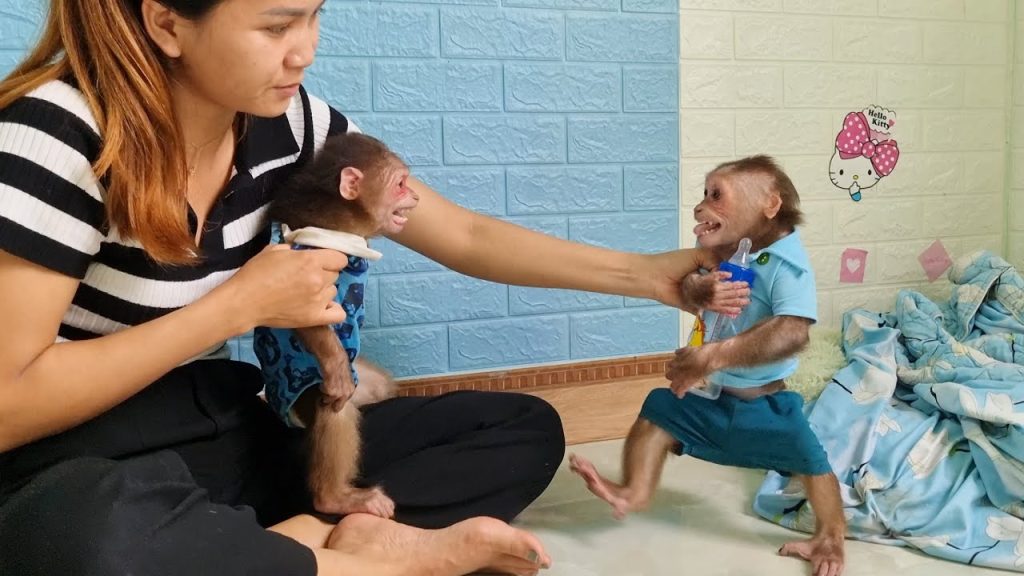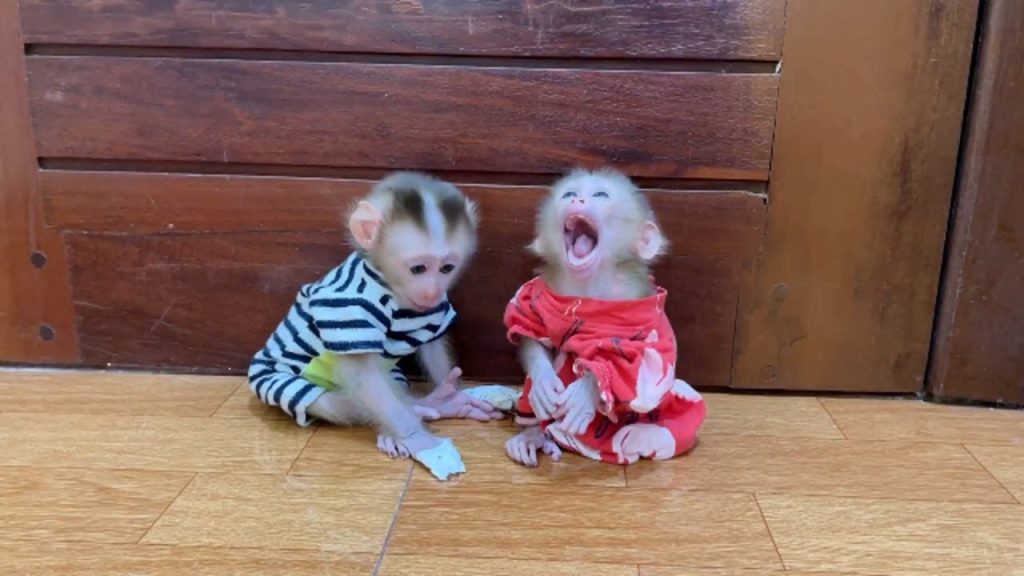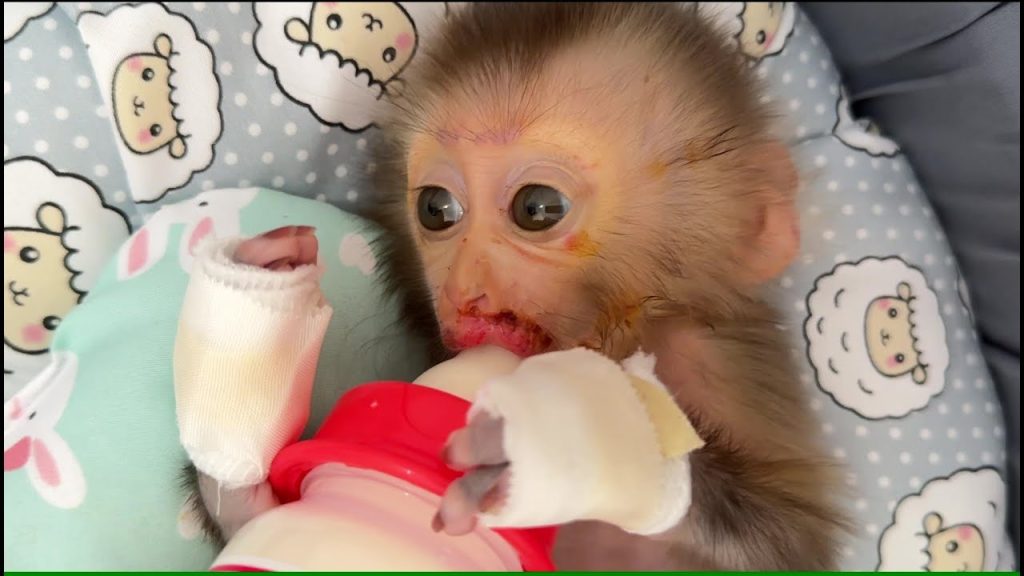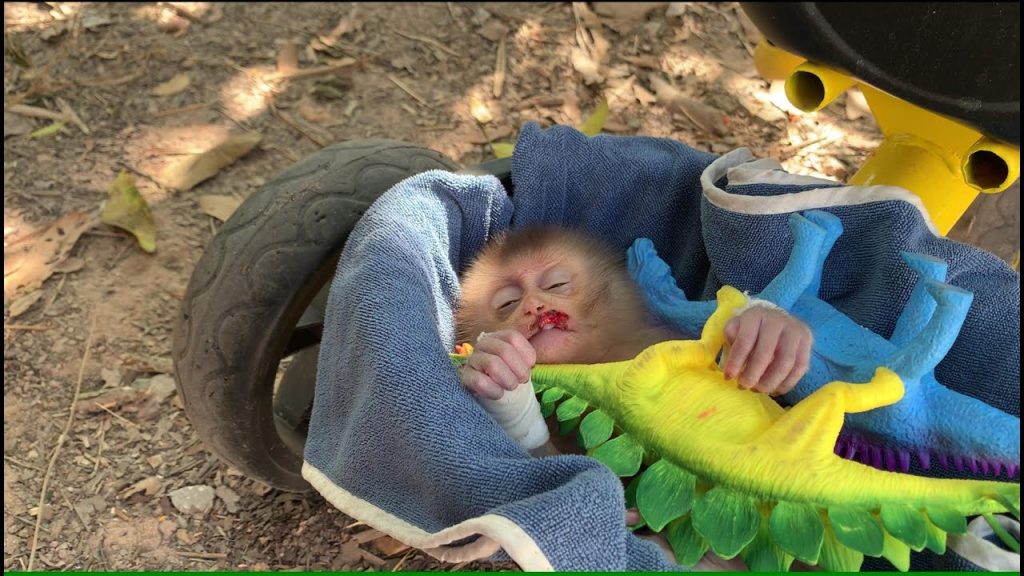
Mimi is not simply mad at Kuku because of a bottle; what we are seeing is the emotional architecture of competition in early primates. For very young monkeys, milk is not just “food.” It is safety, warmth, ownership, identity, and social proof. When Mimi sees Kuku receiving a bottle, Mimi’s brain interprets it as a direct threat to his own connection and survival, even if Mimi already has his own portion. Young primates often do not yet understand fairness or waiting; they understand access — what is in their hands, or mouths, in this exact second. The milk bottle becomes a symbol. Mimi is not thinking, “I want milk.” Mimi is thinking, “Kuku is receiving something that should belong to ME.” This is why Mimi’s anger intensity feels disproportionate to the adult observer. Jealousy in early primate development is not refined jealousy; it is primitive and loud. Even in wild troops, babies sometimes shove or cling harder when another infant gets close to the mother’s chest. We are watching a natural behavior — a kind of early social testing, where a baby is trying to secure his place. Kuku, however, does not necessarily understand that Mimi’s anger is about rank or fear; Kuku just sees another baby who looks upset. So the emotional loop escalates with no language to resolve it. If humans intervene gently — calm tone, slow body language, and clear separation — the tension can lower without adding more stress. Young monkeys begin learning that resources can be shared, but this learning happens over many repetitions, not instantly. One day, Mimi will understand that Kuku drinking does not erase his own safety — but right now Mimi is in a stage where possession equals security. So the scene looks dramatic: a tiny body full of fury, ears pulled back, eyes narrowed, trying to reach the bottle that Kuku is holding. Yet inside that anger is something simple and small — a fear of not having enough, a fear of being left out, a desperate instinct to make sure that love and food remain available to him. Every tantrum at a bottle is not just about milk; it is about the hard work of learning how to exist alongside others who also need care.


